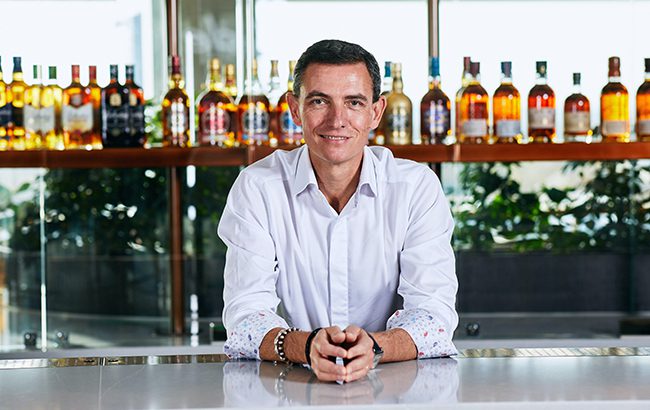This website uses cookies so that we can provide you with the best user experience possible. Cookie information is stored in your browser and performs functions such as recognising you when you return to our website and helping our team to understand which sections of the website you find most interesting and useful.
UK-India FTA could double size of Scotch
By Nicola CarruthersThe CEO of Chivas Brothers has said the forthcoming UK-India trade deal could double the size of the Scotch whisky market in five years.

Discussions over the UK and India’s forthcoming free trade agreement (FTA), which could remove the 150% import tax on whisky, are currently underway.
If approved, Chivas Brothers chairman and CEO Jean-Etienne Gourgues said the move could double the size of the Scotch whisky market in five years.
“More importantly in the long-term, there is a huge base of Indian whisky brands in the market, and that there is fantastic potential of innovation for prestige and luxury whiskies, where Scotch whisky is beautifully positioned,” he said.
Ballantine’s and Chivas Regal would be the focus for the business in India, with the first innovation to come from Ballantine’s Finest, followed by Chivas, and Royal Salute “down the road”, Gourgues explained. “We will really target more activities in the coming years for the two brands. The FTA will heavily support that.”
Last week, Pernod Ricard released its financial results for the first half of fiscal 2023, with organic sales up by 19%.
The firm’s Scotch whisky arm, Chivas Brothers, reported a 23% organic sales increase during the six-month period. Chivas Regal, Ballantine’s, Royal Salute and The Glenlivet each experienced double-digit growth, with increases of 34%, 17%, 37% and 12% respectively.
Gourgues said the results were higher than pre-Covid levels, with “very broad-based growth”.
“It’s a good mix between mature markets, which are growing at 22% and emerging markets which are growing at 24%,” he said. “The quality of growth is very value driven, led by premiumisation, and the prestige part of the range is growing at 28%.”
The firm’s North American business saw a 6% sales increase. Gourgues said the US market is “normalising” after growing strongly over the last three years. “The US is growing at plus-6%, in line with the average growth of the market (3% to 5%), which is almost entirely value driven.”
Gourgues also highlighted a number of emerging markets for the business, including Brazil, which rose by 40%, and Mexico (up 21%).
He pointed to India – “the largest whisky market in the world, which is growing strong and has been plus-25%”.
Gourgues also cited Korea, where there is “real growth in the luxury part of the market”.
He added: “We have enjoyed very, very high growth of almost 60% to 90% in those markets.”
The Glenlivet has “historically been strong in the US, but is now growing at a very fast pace in Asia, in particular Taiwan and China,” he added.
The brand will celebrate its 200th birthday next year and Gourges hinted there will be several announcements planned for the coming year.
Gourgues also said the company is “globalising” the Aberlour whisky brand, citing markets such as the US and Asia.
Industry challenges
Scotland’s consultation on restricting alcohol advertising and promotion is also due to close on 9 March.
“I think the fundamentals are right, the desire to have responsible consumption, not to target young people, pregnant women, etc. I mean, it’s absolutely right.”
However, he warned that the consultation could deter the industry of two things.
“The first one is to support our local communities,” Gourgues explained. “We have distilleries in many villages and small cities, and we have been providing local support to them for decades. We wouldn’t be able to do that.
“And the second thing is investment in tourism in Scotland. In pre-Covid times, there have been around two million visitors coming to Scotland for the whisky trade. Other industry players are heavily invested in tourism facilities and brand homes. So this [proposal] will prevent us from advertising anything to foreign visitors.”
Gourgues noted that supply chain disruption has been the biggest challenge over the last year. He added: “The implication of the cost of the energy crisis and the necessity to move into very tangible action with short-term concrete results on the decarbonisation roadmap. These two elements are linked together.”
He also cited the “tremendous” cost of freight, which has impacted the company’s exports to markets such as the US, Southeast Asia, Australia and South Africa.
The firm is looking at how it can reduce the amount of energy it needs across its distilleries, including using MDR technology to lower energy by 50% to 80%.
Gourgues said the company will “fast track a number of initiatives” and aims to reach carbon neutrality by 2026.

